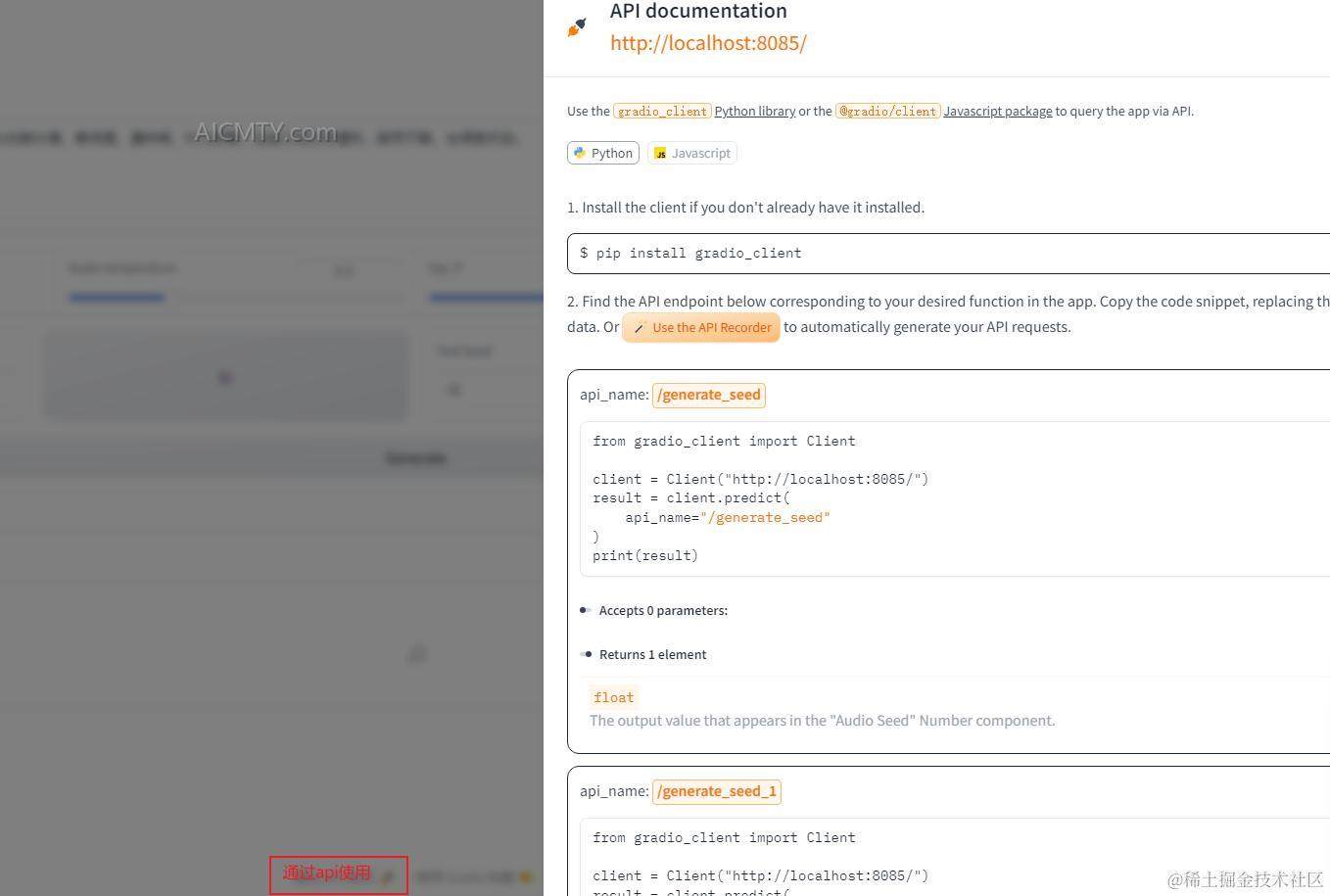背景
我们说完了chatTTS的介绍以及安装,体验完之后我们发现一个问题,chatTTS无法合成长文本,一般不超过30秒,下面分享一个解决思路,权当抛砖引玉
解决思路
- 文本分割
- 文本清洗
- 循环生成语音
- 语音合成
文本分割
我们可以考虑spacy
安装
pip install spacy
对于中文需要加载一个模型
nlp = spacy.load('zh_core_web_sm')
我们可以在Github上找到该模型
下载地址
浏览器下载慢的话可以试试迅雷,或许有奇效,安装完成后,在命令行中cd到该目录
pip install zh_core_web_sm-3.7.0-py3-none-any.whl
使用
doc = nlp(text)
sentences = [sent.text.replace("n", "") for sent in doc.sents]
for sentence in sentences:
print(sentence)
文本清洗
我们参考ChatTTS项目对项目标点转成只有逗号和句号。并使用停顿来控制
character_map = {
':': ',',
...
'—': ',',
}
motion_map = {
',': '[uv_break]',
'。': '[lbreak]',
}
class TextUtils:
...
def apply_character_map(self):
"""
将字符映射到对应的字符
"""
translation_table = str.maketrans(character_map)
self.out = self.out.translate(translation_table)
def apply_motion_map(self):
"""
将字符映射到对应的动作
"""
translation_table = str.maketrans(motion_map)
self.out = self.out.translate(translation_table)
我们测试一下
if __name__ == "__main__":
tu = TextUtils(file=r"D:\斗破苍穹.txt")
tu.convert_half_width_to_full_width()
tu.apply_character_map()
tu.apply_motion_map()
print(tu.out)
结果如下

我们推荐先将文本清洗完成,然后一行一行读取
循环生成语音
其实就是循环调用gradio的接口
可在项目底部找到说明

我们可将每次生成语音固定存在某个目录
语音合成
方案有很多,我们选择最常见的ffmpeg方案,需要事先将ffmpeg添加到环境变量
...
# 合并音频
cmd = [
"ffmpeg",
"-safe", "0",
"-f", "concat",
"-i", "input.txt",
"-c", "copy", "-y",
f"{source_directory}\output.wav"
]
log.info(" ".join(cmd))
完整代码
text_utils
character_map = {
':': ',',
';': ',',
'!': '。',
'(': ',',
')': ',',
'【': ',',
'】': ',',
'『': ',',
'』': ',',
'「': ',',
'」': ',',
'《': ',',
'》': ',',
'-': ',',
'‘': '',
'“': '',
'’': '',
'”': '',
':': ',',
';': ',',
'!': '.',
'(': ',',
')': ',',
'[': ',',
']': ',',
'>': ',',
'<': ',',
'-': ',',
'…': '',
'—': ',',
}
motion_map = {
',': '[uv_break]',
'。': '[lbreak]',
}
class TextUtils:
def __init__(self,text="",file=""):
if text != "":
self.text = text
else:
log.info("Reading file: " + file)
if file == "":
# 抛出异常
log.error("File not found")
return
with open(file, 'r', encoding='utf-8') as f:
self.text = f.read()
self.out = ""
def convert_half_width_to_full_width(self):
"""
将半角字符转换为全角字符
"""
out = ""
for char in self.text:
if ord(char) == 32:
out += " "
elif 33 <= ord(char) <= 126:
out += chr(ord(char) + 65248)
else:
out += char
self.out = out
def apply_character_map(self):
"""
将字符映射到对应的字符
"""
translation_table = str.maketrans(character_map)
self.out = self.out.translate(translation_table)
def apply_motion_map(self):
"""
将字符映射到对应的动作
"""
translation_table = str.maketrans(motion_map)
self.out = self.out.translate(translation_table)
main
from gradio_client import Client
from simpleaudio import WaveObject
import shutil
import spacy
from pathlib import Path
from datetime import datetime
import subprocess
from text_utils import TextUtils
# 对于中文
# https://github.com/explosion/spacy-models/releases/download/zh_core_web_sm-3.7.0/zh_core_web_sm-3.7.0-py3-none-any.whl
# pip install zh_core_web_sm-3.7.0-py3-none-any.whl
nlp = spacy.load('zh_core_web_sm')
import logging as log
log.basicConfig(level=log.INFO, format='%(asctime)s - %(name)s - %(levelname)s - %(message)s')
# 保存目录
target_home = "D:chattts_audio"
# 服务地址
url = "http://localhost:8080/"
class TTS:
def __init__(self, url):
self.client = Client(url)
def generate(self, text, temperature=0.3, top_P=0.7, top_K=20, audio_seed_input=123456789, text_seed_input=987654321,
refine_text_flag=False):
data = {
"text": text,
"temperature": temperature,
"top_P": top_P,
"top_K": top_K,
"audio_seed_input": audio_seed_input,
"text_seed_input": text_seed_input,
"refine_text_flag": refine_text_flag
}
result = self.client.predict(
api_name="/generate_audio",
**data
)
log.info(result[1])
return result[0]
def play(self, file_name):
wave_obj = WaveObject.from_wave_file(file_name)
play_obj = wave_obj.play()
play_obj.wait_done()
def move(self, file_name, target_name):
parent_path = Path(file_name).parent
shutil.move(file_name, target_name)
# 删除
shutil.rmtree(parent_path)
def gengerate_from_txt(self, txt):
# 读取文本文件
file_name = self.generate(txt)
timestatmp = datetime.now().strftime("%Y%m%d%H%M%S")
self.move(file_name, f"{target_home}/{timestatmp}.wav")
def generate_from_file(self, file_name):
# 读取文本文件
with open(file_name, "r", encoding="utf-8") as f:
text = f.read()
# 获取文件名不带后缀
file_name = Path(file_name).stem
save_dir = f"{target_home}/{file_name}"
Path(save_dir).mkdir(parents=True, exist_ok=True)
doc = nlp(text)
sentences = [sent.text.replace("n", "") for sent in doc.sents]
for sentence in sentences:
# 去除空行
if sentence.strip() == "":
continue
tu = TextUtils(text=sentence)
tu.convert_half_width_to_full_width()
tu.apply_character_map()
tu.apply_motion_map()
log.info(tu.out)
file_name = self.generate(tu.out)
timestatmp = datetime.now().strftime("%Y%m%d%H%M%S")
self.move(file_name, f"{save_dir}/{timestatmp}.wav")
def merge_audios(self, source_directory):
wav_list = Path(source_directory).glob("*.wav")
# 根据时间戳排序
wav_list = sorted(wav_list, key=lambda x: int(x.stem))
# 生成input.txt
with open("input.txt", "w", encoding="utf-8") as f:
for wav in wav_list:
# 路径分割为\
f.write(f"file '{wav.as_posix()}'n")
# 合并音频
cmd = [
"ffmpeg",
"-safe", "0",
"-f", "concat",
"-i", "input.txt",
"-c", "copy", "-y",
f"{source_directory}\output.wav"
]
log.info(" ".join(cmd))
subprocess.run(cmd, check=True)
# 删除
Path("input.txt").unlink()
def main():
tts = TTS(url)
file_path = "D:\斗破苍穹.txt"
tts.generate_from_file(file_path)
tts.merge_audios(str(Path(target_home).joinpath(Path(file_path).stem).resolve()))
if __name__ == "__main__":
main()

